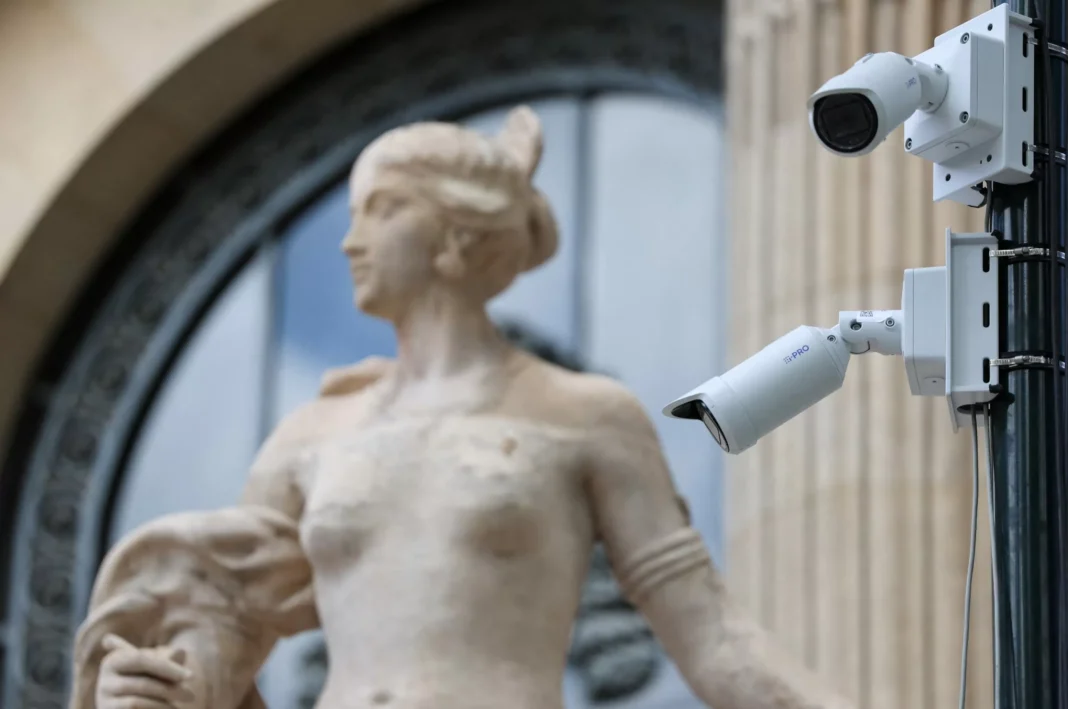The 2024 Paris Olympics were an event to remember, with athletes from around the world showcasing their exceptional skills and bringing pride to their respective countries. But behind the scenes, a new experiment was taking place that has sparked controversy and concern among experts.
The French officials decided to implement AI-assisted algorithmic video surveillance during the summer Olympics, with the intention of enhancing security measures and ensuring the safety of athletes and spectators. This technology, which uses artificial intelligence to analyze live video footage and detect potential threats, was seen as a groundbreaking step towards creating a safer environment for everyone involved in the event.
However, now that the Olympics have come to an end, French officials have announced their plans to make this technology a permanent fixture in the city. This decision has raised red flags among experts, who believe that this is a worrying use of invasive and potentially discriminatory technology.
The use of AI-assisted algorithmic video surveillance has been met with criticism from various human rights groups, who fear that this technology could lead to a violation of privacy and even discrimination based on race or ethnicity. The concern is that the algorithms used in this technology may be biased and could disproportionately target certain groups of people.
The French government has defended their decision, stating that the use of this technology is necessary to ensure the safety of citizens and prevent potential threats. They also claim that the algorithms used are constantly monitored and updated to eliminate any biases.
However, experts argue that even with constant monitoring, there is still a risk of discrimination and invasion of privacy. They also point out that this technology has not been thoroughly tested and its effectiveness has not been proven.
In addition to the ethical concerns, there are also practical issues with the use of AI-assisted algorithmic video surveillance. The cost of implementing and maintaining this technology is significant, and it is unclear who will bear the financial burden. Moreover, there is a lack of transparency in how this technology will be used and who will have access to the data collected.
Another concern is the potential for this technology to be used for purposes other than security. With the ability to constantly monitor and track individuals, there is a risk of this technology being misused for surveillance and control.
The French government must carefully consider the implications of making this technology a permanent part of their security measures. The use of AI-assisted algorithmic video surveillance should not be taken lightly, as it has the potential to infringe on the rights and freedoms of citizens.
Instead of rushing to make this technology permanent, the French officials should take a step back and thoroughly evaluate its effectiveness and potential risks. They should also engage in open and transparent discussions with experts and citizens to address any concerns and ensure that the use of this technology is in line with ethical and legal standards.
Furthermore, the decision to use AI-assisted algorithmic video surveillance should not be made solely by the government. It is important to involve all stakeholders, including human rights groups and citizens, in the decision-making process.
It is understandable that the French government wants to ensure the safety and security of its citizens, especially in light of recent terror attacks. However, this should not come at the cost of sacrificing privacy and potentially discriminating against certain groups.
In conclusion, the use of AI-assisted algorithmic video surveillance during the Paris Olympics was a bold experiment, but its permanent implementation raises serious concerns. The French government must carefully consider the ethical and practical implications of this technology before making a final decision. It is crucial to find a balance between security and individual rights, and this can only be achieved through open and transparent discussions and a thorough evaluation of the technology. Let us hope that the officials will make the right decision for the sake of all citizens.


